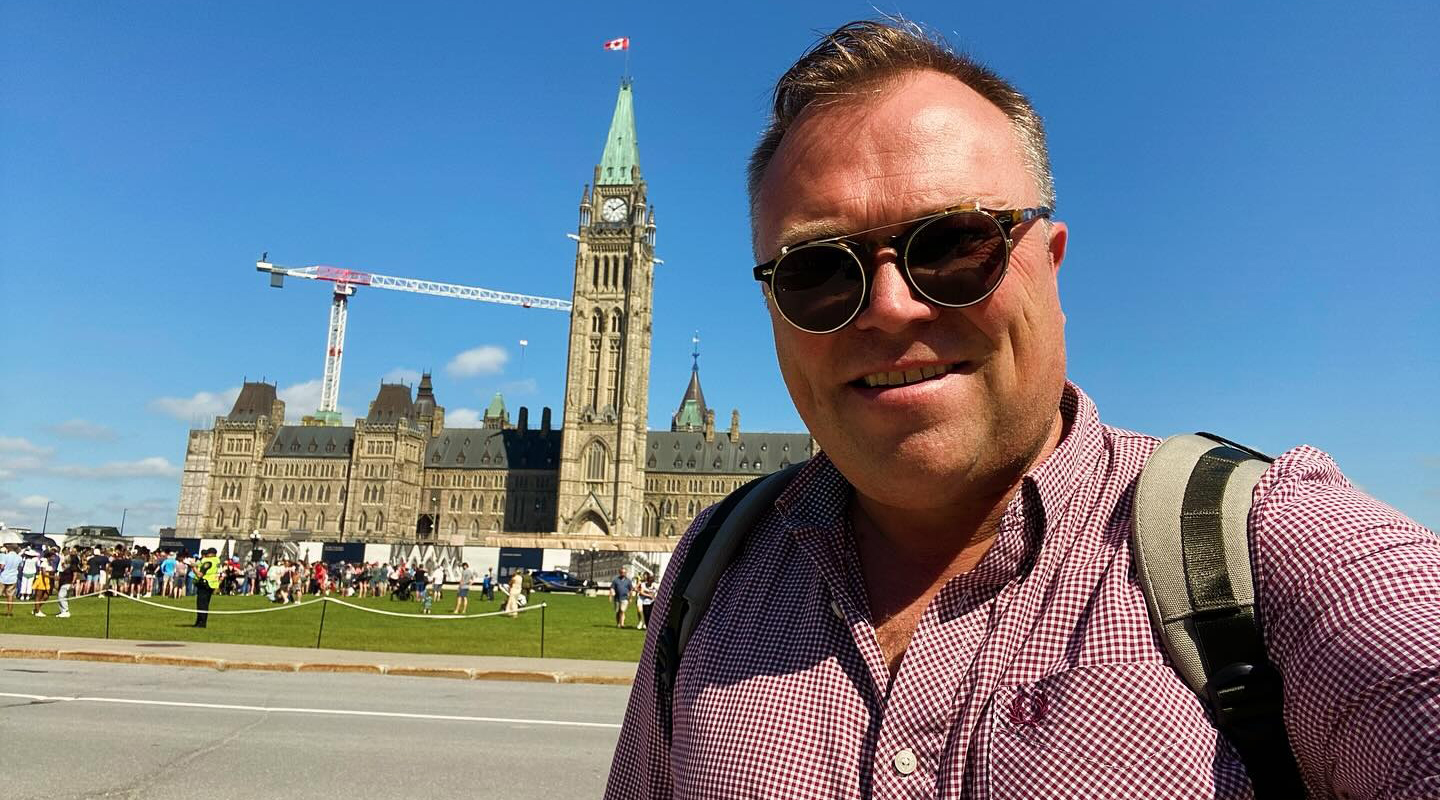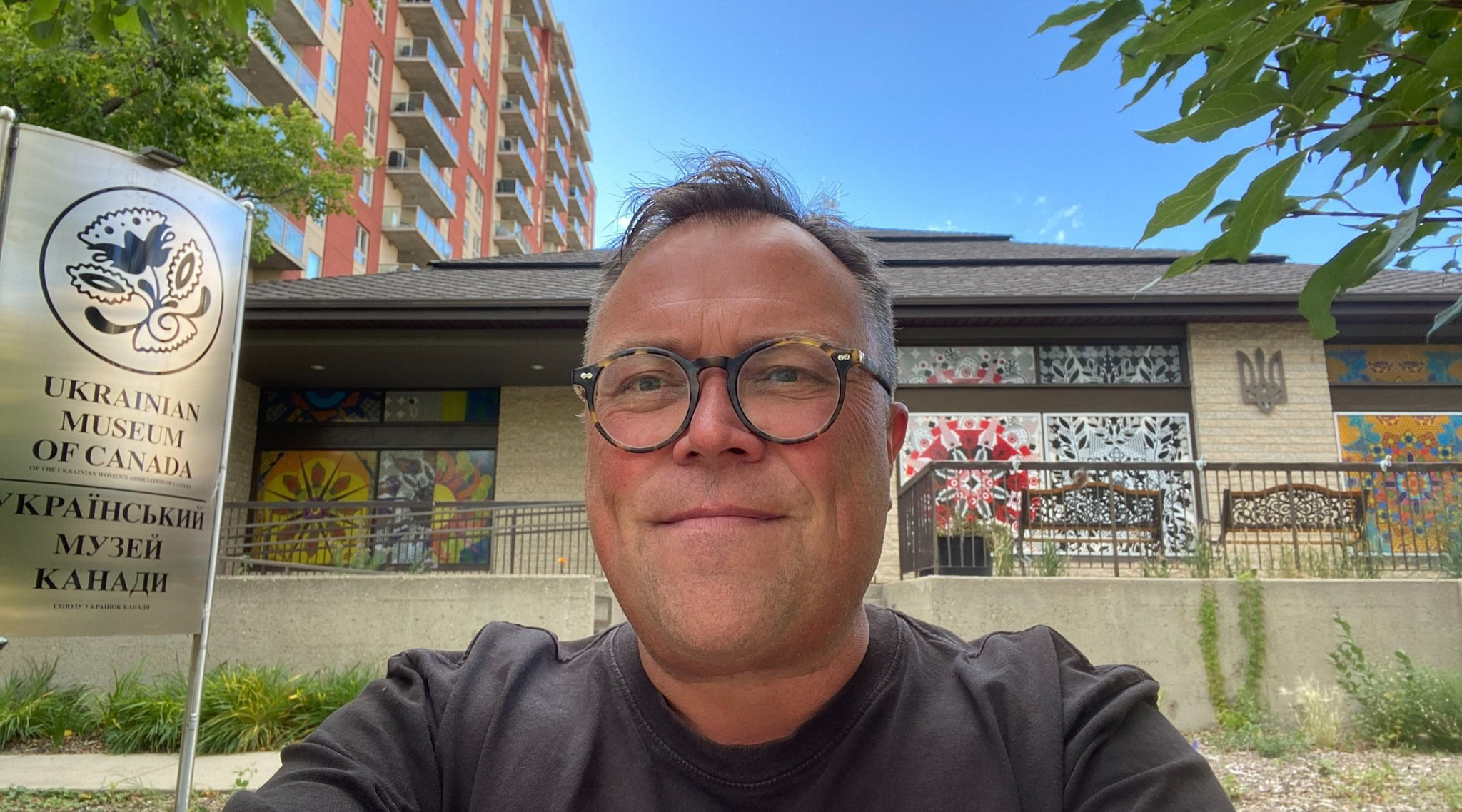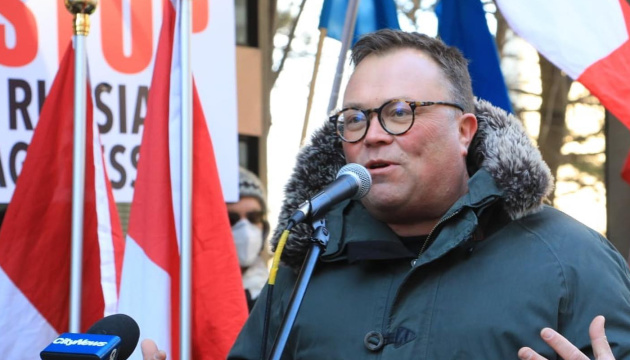Last year a Canadian media network was exposed for deliberately spreading Russian narratives to its large North American audience, reigniting debate about the scale and impact of Kremlin disinformation campaigns in Canada.
Canadian disinformation expert Marcus Kolga says the Kremlin’s main goal is to weaken support for Ukraine by pushing narratives about “neo-Nazism,” “overwhelming corruption,” and supposed “Ukrainian control over Canadian foreign policy.” Such attacks, he warns, not only distort public perceptions but also have real consequences – from undermining trust in the Ukrainian community to delaying military aid to Kyiv.
In an interview with Ukrinform, Kolga, Senior Fellow at the Macdonald-Laurier Institute and founder of DisinfoWatch, outlined the tools and targets of Russian information operations in Canada, explained why the Ukrainian community is a particular focus, and shared how to strengthen defense against disinformation in social media.
PUTIN’S OVERARCHING GOAL IS TO STAY IN POWER AS LONG AS POSSIBLE
— You’ve been researching disinformation for many years and were even sanctioned by Russia and China because of your work. How did you first get involved in this field?
I came into this space quite naturally. My parents were Estonian refugees who fled Soviet occupation in 1944 and settled in Canada. Growing up, our household often discussed the fight for independence in Estonia, Latvia, Lithuania, and Ukraine. We also saw firsthand how Soviet propaganda denied our history and sought to discredit our communities.
I went into journalism and, around the time Putin came to power, became concerned about his direction. I produced a 2004 documentary about my grandfather’s GULAG experience, and by 2007 – after Russia orchestrated unrest in Estonia during the Bronze Soldier riots – it became clear that history itself was a target of Putin’s regime. That’s when I began actively tracking and warning about disinformation. At the time, it was a lonely effort in Canada, but the problem has only intensified ever since. Luckily, I’m not lonely in this field anymore.

— What are the main objectives of Russia’s disinformation operations?
Since the Cold War, the overarching goal has always been to legitimize Russia’s imperial ambitions. A classic tactic is labelling anyone who resisted Soviet domination as a “neo-Nazi,” which dehumanizes entire communities.
Today, the primary objective is to erode support for Ukraine, both within Canada and across the West. Where there is a strong appetite to provide aid, disinformation seeks to undermine it.
The secondary objective is to destabilize democracies. We know from leaked Russian documents that Moscow instructs contractors to monitor Western societies for divisions, intensify them with disinformation, and, where none exist, create them.
Inside Russia, the goal is simple: silence dissent and keep Putin in power as long as possible.
IN CANADA, UKRAINIAN, BALTIC, AND BELARUSIAN COMMUNITIES ARE PRIME TARGETS
— How is the Canadian context different?
Here, Russian disinformation often targets Ukrainian, Baltic, and Belarusian communities.
When Canada assumed NATO’s leading role in Latvia in 2015, smears quickly appeared, claiming that Latvia’s leaders were “neo-Nazis,” meant to undermine NATO and demoralize Canadian troops.
Ukrainian Canadians have been frequent targets, too. Chrystia Freeland, because of her heritage, was smeared as a “Nazi sympathizer.” I myself have been attacked in Russian state media: Komsomolskaya Pravda ran stories about me in 2019 and even launched a petition calling for my citizenship to be revoked.
Another tactic is laundering narratives through Canadian voices – former diplomats on Russian corporate boards, or academics who wrote regularly for RT. These figures give propaganda a veneer of legitimacy.
— What narratives about Ukraine are most common in Canada?
Three stand out. The first one is the “neo-Nazi” narrative – central since 2014 and even used by Putin to justify his 2022 invasion. It’s absurd, as Ukraine is led by a Jewish president, but it gained limited traction because many Canadians lack deep knowledge of Ukrainian and Soviet history.
The second one is “Ukrainians control Canada’s foreign policy” – a divisive claim designed to breed resentment. Shockingly, even a former senior advisor in Canada’s foreign ministry echoed it in a book. Finally, “overwhelming corruption” – false claims that Western aid is stolen or sold on the black market. This narrative has had a real-world impact: it resonated with far-right circles in North America and contributed to delays in U.S. military aid, which cost Ukrainian lives.

RUSSIAN DIPLOMATS ARE MAJOR DISSEMINATORS OF PROPAGANDA
— Have you noticed Russian efforts to manipulate the current peace discussions?
In the U.S., yes. In Canada, not in the mainstream. The government here has been fairly clear-eyed about Russia’s intentions. But Kremlin narratives still circulate on the far right and far left, claiming that Zelensky is prolonging the war or that Ukraine should surrender territory. They haven’t had a measurable impact on Canadian policy, but they remain present.
— Which platforms are used to spread disinformation in Canada?
The Russian embassy and consulates are key disseminators using social media, along with RT and Sputnik. Kremlin-backed outlets like Strategic Culture and the Montreal-based Global Research are also major players.
In recent years, RT secretly funded far-right influencers under the guise of creating “Tenet Media,” pushing anti-Ukrainian narratives to millions of unsuspecting Canadians and Americans.
Finally, compromised Canadian academics and former diplomats amplify Kremlin messaging in domestic media without disclosing their ties. That’s one of the most effective ways Russia launders its propaganda.
WHENEVER YOU SEE CONTENT CRITICAL OF UKRAINE, ASK WHO BENEFITS
— Is the Ukrainian Canadian community especially vulnerable?
Not vulnerable to being influenced, but certainly is a target. The goal is to discredit community leaders and strip credibility by branding Ukrainians as “neo-Nazis.” Fortunately, neither Canadian society nor the Ukrainian Canadian community has accepted these smears, and resilience has been strong.
— How effective has Canada been in countering disinformation?
It was slow to start, but progress has been made. The Rapid Response Mechanism at Global Affairs, set up by Chrystia Freeland, has become an effective tool for monitoring and exposing disinformation.
Where Canada has failed is in accountability. Some Canadians still collaborate with sanctioned Russian outlets and think tanks, yet face no consequences. We’ve also failed to address transnational repression: death threats and harassment against Canadians, including myself and many in the Ukrainian community. Unless we better protect frontline defenders, we risk wearing them down and leaving society more vulnerable.
— Finally, what’s the one message you’d want ordinary Canadians to remember when they scroll through social media?
Russia spends $1.3 billion a year on disinformation. When you see content critical of Ukraine, Zelensky, or the Baltic and Ukrainian communities, ask yourself: who benefits? Almost always, the answer is Russia.
Report such posts when possible. By doing so, you make it harder for propaganda to spread. If we all take action, we can keep Canada’s information space cleaner, safer, and far less polluted by Kremlin narratives.
Maksym Nalyvaiko, Ottawa




